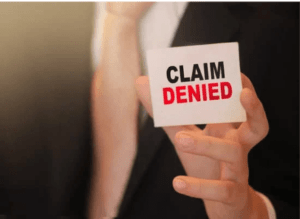
Understanding Your Deferred VA Claim
VA disability benefits can be a lifeline if your ability to earn a living is limited due to a service-connected disability. So, it’s not unusual for veterans who have submitted a disability claim to be anxiously on the lookout for the decision letter. Approval is great, and denial probably means that you need to choose an appeal path to keep your claim moving. But what if the letter you receive doesn’t say “approved” or “denied”?
Getting a letter that says your claim has been deferred can be disconcerting–especially if you didn’t realize that was one of the possibilities. Here’s what you need to know about deferred VA disability claims.
What Does Deferred Mean in a VA Disability Case?
When you receive a letter that says your claim has been deferred, it simply means the VA has decided not to make a decision yet. It’s not necessarily a bad sign. In fact, you should view it as an opportunity. When your claim is deferred, that means the VA doesn’t think they have enough information to make a decision. That means you have a chance to provide additional evidence.
If you do get a notice saying your claim is deferred, you will likely be asked for additional documentation. It’s important that you act promptly to provide whatever has been requested.
Call 1-888-373-4722 or complete a Free Case Evaluation form
The Downside to Deferral
Deferred status doesn’t necessarily mean your claim will be denied, and it gives you an opportunity to provide further information. But, there is one negative aspect: when your claim is deferred and the VA has to request additional information, that sets back the timeline on deciding your claim. That means you may have to wait longer to start receiving benefits.
Avoiding Deferral of Your VA Disability Claim
The best way to avoid having your claim deferred pending additional information or evidence is to make sure you are thorough in filing your initial claim. That means providing all necessary service-related information, medical documentation, buddy letters, a nexus letter if your condition isn’t presumed service connected, and any other documentation necessary to support your claim.
Determining exactly what the VA needs and how to obtain those records can be daunting. Fortunately, you don’t have to figure it out on your own. Whether you’re just preparing your claim, have been informed that a decision has been deferred pending additional information, or need to appeal a denial, an experienced disability benefits advocate can help. To learn more, contact Disabled Vets today at 843-300-7600 or fill out our contact form.
Call 1-888-373-4722 or complete a Free Case Evaluation form
Read More Here:
- VA Disability Compensation Rates
- What Is TDIU and How Can I Get It?
- Types Of VA Disabilities
- SSDI For Veterans
- Can My Spouse Receive My VA Disability After I Die?
- VA Benefits For Spouses of 100% Disabled Veterans
- The Easiest Way to a 100% VA Disability Rating
Call 1-888-373-4722 or complete a Free Case Evaluation form







